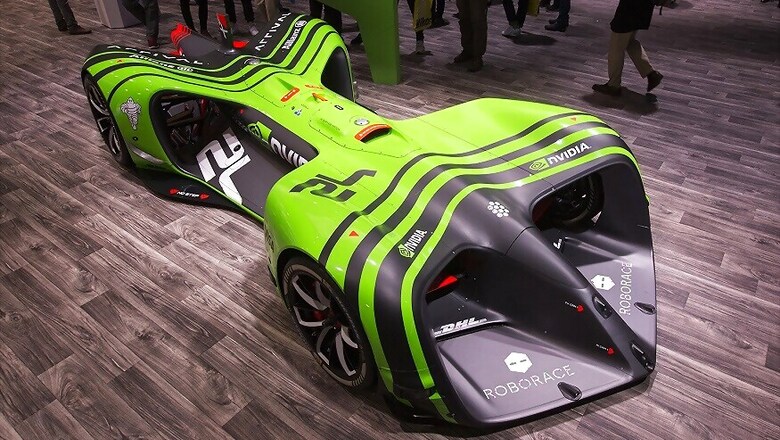
views
This year's Detroit Auto Show has unfolded with the slick precision of a corporate infomercial, filled with sparkly new offerings, but little of the crackle of something truly innovative. There were no launches of major new electric vehicles and no significant news on autonomous cars that hadn't come out a week earlier at the Consumer Electronics Show in Las Vegas. Instead, the annual Motor City gathering was dominated by revamps of tried-and-true models, especially pickups and SUVs that have been the foundation of US car sales in recent years. Like many other industries, automakers know now to show up at CES for the buzziest discussions about technology that affects their sectors. Critics question the relevance of the Detroit show as CES grabs more attention.
"At Detroit, you see the cars of yesterday. At Las Vegas, you get a glimpse of the cars of tomorrow," said Ferdinand Dudenhoeffer of the Center for Automotive Research at the University of Duisburg-Essen in Germany.Also Read: All-New Maruti Suzuki Swift First Drive Review: Everything Done Right
Dudenhoeffer said all conventional car shows have lost some of their luster in recent years, but Detroit is even more diminished than Frankfurt or Tokyo, in part because so many of the vehicles presented are massive gas guzzlers that have no overseas market.
Max Muncey, a spokesman for the Detroit Auto Show, brushed aside talk that CES has rendered Detroit a has-been, running through a litany of best-selling US vehicles that were first introduced in Detroit.
"There's a lot of wasted air that's happening down there about technology and products that are never going to see the light of day," Muncey said of CES, adding that there are actually "synergies" between the two events. "I think discussions there are about five, 10, 15 years out from making the road," he said. Technologies discussed in Detroit are "going to be on vehicles within the next 12 months."Also Read: Maruti, Hyundai Dominate 10 Best Selling Passenger Vehicle Models in December- Storied history -
The show, officially called the North American International Auto Show, was originally devised in the 1980s to boost the US auto industry amid the rise of Japanese and German imports. The event in those years featured such iconic figures as Lee Iacocca, a legendary executive at both Ford and Chrysler, and Roger Smith of General Motors. In 1989, both Toyota and Nissan chose Detroit to officially launch their luxury lines, Lexus and Infiniti. The show has also seen plenty of head-spinning stunts, such as in 2008, when Dodge unleashed a parade of longhorn cattle and cowboys through downtown Detroit to launch a new Dodge Ram truck.
The 2017 show at the Cobo Center in downtown Detroit drew more than 5,000 media members from 61 countries and more than 800,000 visitors from the general public. Between the show itself and side events at hotels and restaurants, it generated $450 million in economic impact for Detroit, according to data from NAIAS. But longtime observers say the show has lost some zest, partly because there are few genuine surprises among vehicle launches.Also Read: Datsun redi-GO AMT Launched in India for Rs 3.8 Lakh
Adding to that is the diminished importance of the US car market as other emerging countries have taken to the roads. The US share of global auto sales was 20 percent in 2017, down from 35 percent in 2000, according to figures cited by Dudenhoeffer. CES only became a big priority for auto execs in the last couple of years as electric cars and autonomous technology became bigger priorities. Part of the problem for Detroit is CES' proximity on the calendar, which can make the car show seem like an afterthought.
At CES this year, Ford announced a series of projects, such as a "transportation mobility cloud" that links communication from a city's public transit systems, and Mercedes-Benz' Smart Vision EQ, a self-driving smart car prototype. Execs from Toyota, GM and other car companies also made headlines. But Detroit defenders say the show remains essential because it offers access to an unmatched array of industry executives, suppliers and academics. Not all the biggest names present publicly, but many stop through for one-on-one meetings at the Cobo Center, said Muncey.
"At the end of the day, we have something special here in Detroit and nobody can take that away from us," Muncey said, noting the city's network of big auto suppliers, manufacturers and researchers. "We bring in the global CEOs that are really unparalleled at both a tech side and an industry side."
Fiat Chrysler chief executive Sergio Marchionne said there is still no substitute for a venue like Detroit as an industry networking hub that surveys today's cars.


















Comments
0 comment